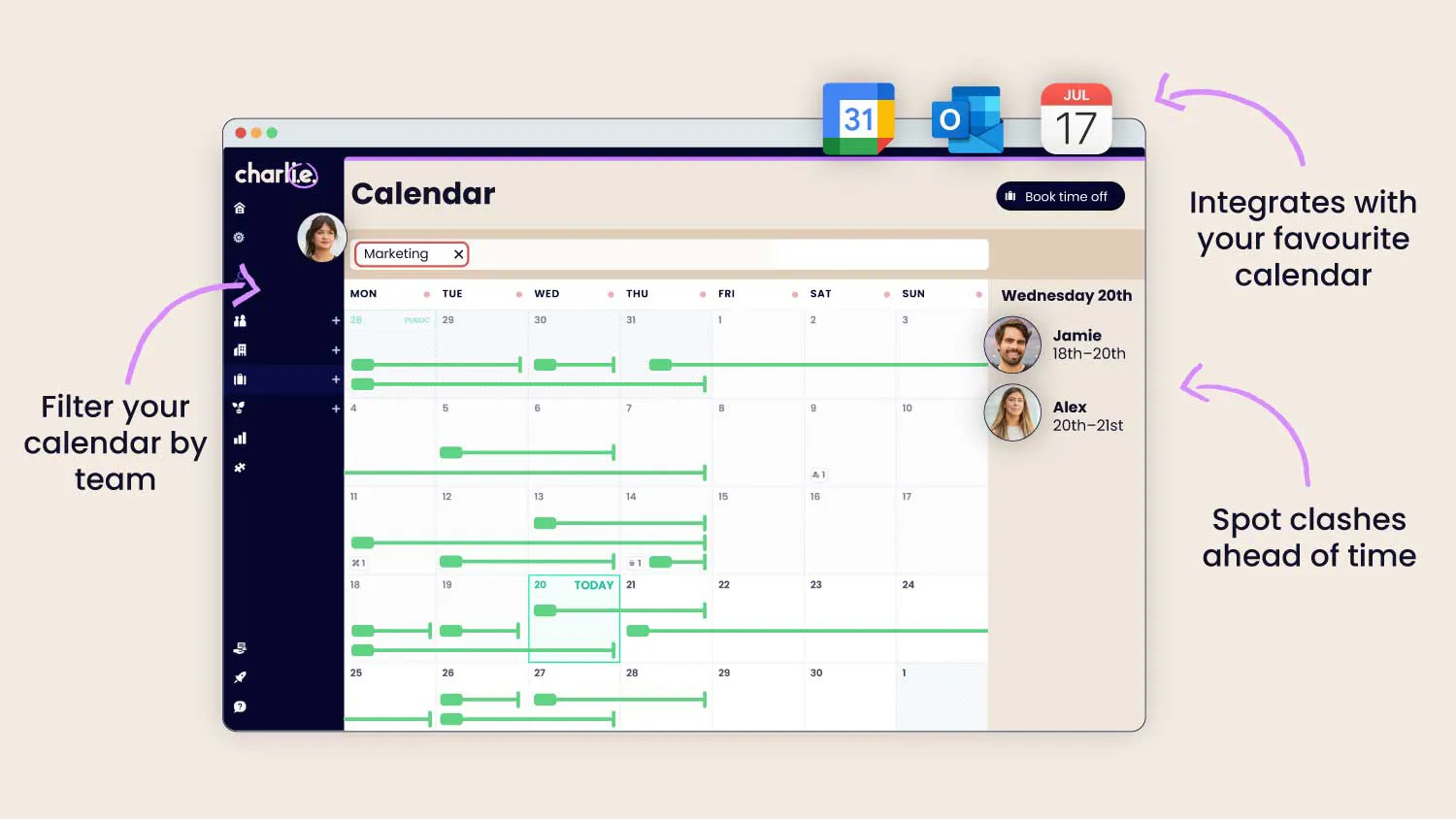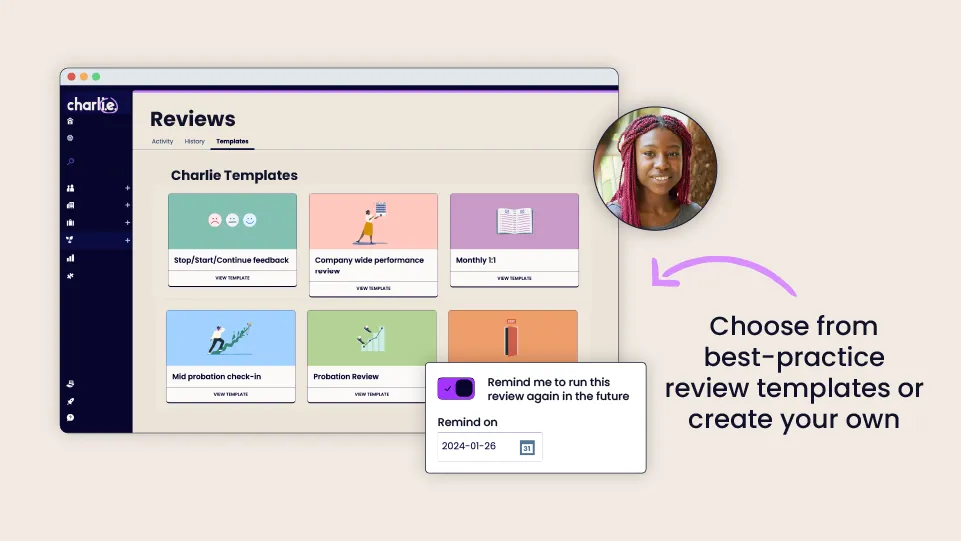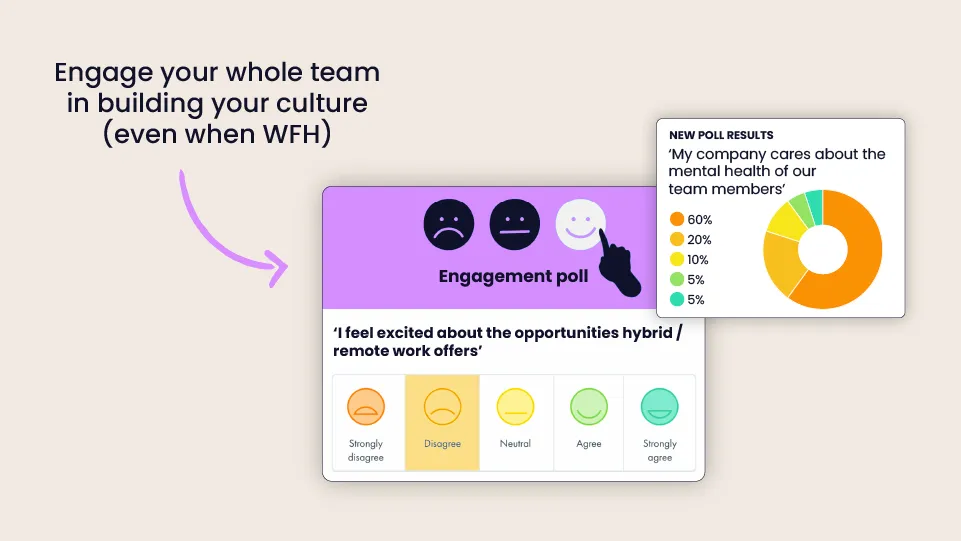How to design the right hybrid working model for your UK small business

Hybrid working policies are seen by many UK small businesses as a “best of both worlds” solution in the ongoing debate about back-to-the-office mandates. Charlie has embraced hybrid work in the UK wholeheartedly, and I for one am all for it.
The shift towards remote and hybrid work environments caught steam during the coronavirus pandemic and has only been ongoing since then. The number of people working from home doubled from 4.7 million to 9.9 million people between 2019 and 2022.
I welcome this change. Remote and hybrid working models are a boon to small businesses because they give them flexibility, and allow their employees to work in whatever way they’re the most productive.
I’d like to use Charlie as a model example of how to implement a hybrid working policy, and how to solve the unique challenges of hybrid working in a way that maximizes its benefits for your small business.
Hybrid working in the UK
People may deny it all they like, but the days of the traditional office are coming to an end. Flexible working is now the norm.
A significant number of working adults in the UK have stated their preference for remote and hybrid working arrangements when given the option. In 2022, 84% of working professionals in the UK stated their intention to carry on with a mix of working at home and working in their office.
UK laws and regulations on hybrid work
Hybrid working is new territory, and the laws and regulations concerning hybrid working are working to catch up to the realities of the modern digital landscape.
As it stands, there are a few regulations regarding hybrid work in the UK that you’ll need to be aware of as a small business HR leader:
- Employees with at least 26 weeks of continuous employment at your organisation have the legal right to make a flexible working request, of which hybrid work is included
- You as an employer must handle these requests in a “reasonable manner.” That may involve holding a meeting with the employee making the request, and offering an appeal process
- Implementing a hybrid work policy may require you to change your employment contracts, to include location of work, available hours, and other matters. Any changes must be mutually agreed upon with the employee
- UK employers are responsible for an employee’s health and safety, regardless of whether they work in the office or remotely. That means doing a risk assessment of their work environment and providing adequate equipment for their home working setup
Find out more about the flexible working law to understand how this can impact your business.
Hybrid work best practices for small businesses
The laws and regulations are changing as the nature of hybrid work in the UK itself changes. Having a hybrid working policy for your small business means having clear rules, but also being flexible enough to adapt to changing circumstances regarding remote work. There are a few best practices to keep in mind here.
Eligibility and guidelines
All the more important your hybrid working policy for your own small business should be crystal clear. It should state the criteria for who is eligible for hybrid work, the application process for requesting hybrid work, and the terms in which hybrid work is permitted.
Data security
Hybrid work, and remote work in general, presents certain complications from a data security standpoint. Working from a home office may create cybersecurity vulnerabilities you may not have in an office setting. Make sure to establish data policies to account for this - along with any VPNs and passwords you use to encrypt your sensitive data.
Technology and infrastructure
Hybrid work has many benefits for both you and your employees. For you, it removes the overhead cost of maintaining an office. For your employees, they get more flexibility and autonomy over their work. There are a few tools you’ll need to make it possible, though.
For starters, you’ll want a VPN and a cloud storage solution to keep your data safe and accessible to everyone on your team.
VPNs like Nord, ExpressVPN, and CyberGhost offer business solutions for VPNs to encrypt your data and keep it secure.
For your HR policies, Charlie has employee document storage you can use to make your documents and procedures accessible to everyone, regardless of whether they work from home or not.
Charlie’s approach to hybrid working
Charlie has adopted a hybrid-first policy since COVID-19 pandemic. I helped to oversee the transition from an office to a remote-work setting, and I daresay it’s worked quite well.
The key is to find the sweet spot between flexibility for your employees working from home, and the opportunities for collaboration you would get from an office setting.
The results? Better employee satisfaction. Increased productivity. People love it, and it’s good for business. Our employees are happier and more engaged with their work than ever. Charlie is now a hybrid company, and it’s not going back.
If you want to replicate the success that we’ve had with hybrid work, it will help to have HR software to facilitate the HR procedures involved with a remote company.
An HR platform that helps you grow a modern hybrid workforce will help keep tabs on your employees and make sure they’re present and engaged at their jobs when they’re supposed to be. A few features you want to look for are:
- Time-off management: track approval of leave requests, and make sure your business runs smoothly even when you’re missing a few heads

- Performance tracking: transparent and fair performance evaluation helps make sure that employees stay productive when they’re remote

- Employee engagement surveys: easy-to-build surveys can help you measure your team’s happiness and engagement, even when you don’t see each other in person

The success I saw at Charlie when we moved to hybrid work was in large part due to our HR platform itself. You can try Charlie for free, and see how it helps you transition to a hybrid work model, and get all the benefits that come with it.

Best practices for implementing hybrid work at UK small businesses
I talked about what’s worked for Charlie. Now, I’d like to take those lessons and offer a few tips to guide you on your transition to hybrid work:
- Make it clear: Outline the expectations for any employees working from home - including when they should be online, if you have core hours, and how frequently they should communicate with you
- Foster open communication: The key to hybrid work is open communication. Have regular team meetings and one-on-one check-ins with team members to make sure everyone is in sync and in agreement about what needs to be done
- Encourage feedback: Your hybrid working policy should evolve as your business and the legal landscape regarding remote work evolves. Getting feedback from your team with employee feedback surveys can be extremely helpful here
- Role suitability: There are roles which are easier to adapt to hybrid work than others. Assess which roles are the best fit for a hybrid model
- Stay flexible: Don’t be afraid to tweak your policies to suit your employee feedback and the needs of your business
Get the most out of hybrid work with Charlie
A hybrid working policy gives you benefits like increased productivity and a happier team. It’s becoming less of a perk and more of an expectation with UK small businesses.
To help you adapt to the new normal, I and the other HR advisors at Charlie are here to guide you on transitioning, whether you’re refining your existing hybrid work policy or it’s completely new to you. Book a free call with us, and be on your way to making a hybrid work policy that fits the unique needs of your business.



